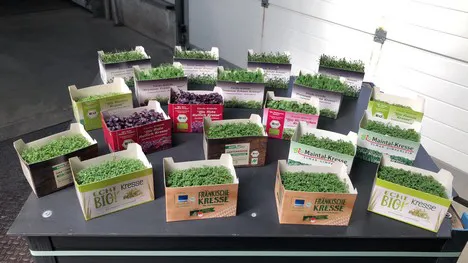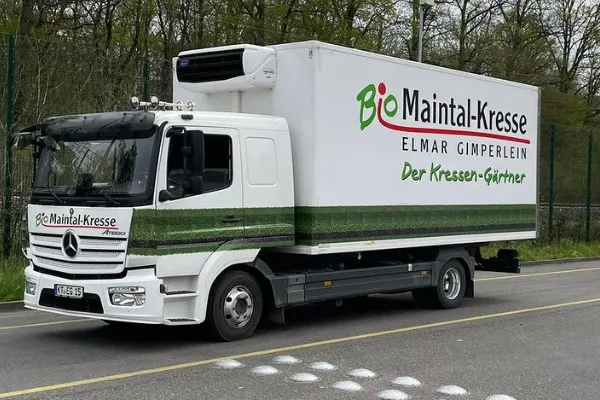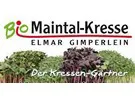Easter sales of organic cresses were generally mixed this year, Christian Gimperlein of Bio-Maintalkresse said in response to an inquiry. "The volume offtake by food retailers was quite satisfactory, while demand in the wholesale market and catering sectors was rather restrained. At the end of the week, i.e., between the holidays, demand then picked up again somewhat. Even on Tuesday, directly after Easter, a lot of goods were reordered because everyone was short."
Overall, the Easter business has tended to lose importance, according to Gimperlein. "The sales peaks that once existed are no longer there, which in turn is due to the fact that the product is available twelve months a year these days, so the marketing volume is split somewhat more evenly throughout the year. Accordingly, the classic holidays, whether Easter or Christmas, tend to be less of a factor."

Manageable cost increases
Similar to his colleagues in the greenhouse cultivation sector, the energy crisis is currently shaping events at the family-owned company. Gimperlein: "We have been able to prevent the crisis to a certain extent by already being well prepared. In the area of natural gas, we have a good, ongoing contract with fixed prices until the end of 2025. Our electricity contract also does not expire until the end of the year. In addition, we have a PV plant as well as a biogas plant, so we are prepared for the coming years."
Although total operating costs are still about 40 percent above last year's level, the peak now seems to have passed. "We have only been able to negotiate a slight price increase, and the costs for cartons and energy, meanwhile, are also already trending downward. But what helps us most is that we run an almost fully automated operation, which is why we only have low labor costs," Gimperlein says about the minimum wage increase.

Reasonable retail prices
He also says the reluctance to buy organic products has not been evident in cresses so far. "Our product is not marketed so much through the natural food retail trade, but mainly through the regular food retail trade. The prices of our products are therefore still reasonable for the average consumer, which is why we cannot detect any significant drop in demand. I assume that the volume of sales to food retailers will remain roughly stable until Whitsun, after which the free-range product will come to the fore somewhat more consistently. We hope that from then on, gastronomy will increasingly access our organic cresses."
In total, the Bio-Maintalkresse company currently produces and markets seven cress varieties. "Our product has established itself very well in food retailing in southern Germany and in wholesale markets throughout Germany. We are planning one or two product ranges or capacity expansions, but that is all still up in the air."
Images: Bio Maintalkresse
For more information:
Christian Gimperlein
Bio Maintalkresse
An der Geißspitze
D-97320 Albertshofen
Tel.: +49 (0)9321 384504
[email protected]
Facebook
